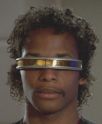|
Owlofcreamcheese posted:How is it dumb? Are you saying that it's just so obvious that a thing like a cell is physically possible and that everyone would just know that across the universe? We have been studying them for hundreds of years and we still can't make anything like them. A scientist from a planet without cells or brains would understand the chemical reactions but the idea "you can make a polymer out of carbon atoms" to 'you could make a cat out of this" is a big jump that isn't particularly obvious and takes a ton of leaps of logic on how any of that would work. 1) Nothing was created, it evolved. 2) what are you blathering about?
|
|
|
|

|
| # ? May 20, 2024 21:07 |
|
Stoner Sloth posted:I wouldn't call it dumb really, but I wouldn't agree with it either. I mean, me and you know cells are physically possible. As a species we have never managed to make any, but we can see them. An alien species that has never been able to make any and also did not have examples of them everywhere would have no real reason to know things like "oh yeah, the random nucleotides I found in space, I looked at one and definitely you could make a dog out of this, like maybe just have a vacuole in some water made of lipids, I don't know, then it'd all work out from there, dog! "
|
|
|
|
Axetrain posted:Hi I'm the lifeform that evolved up on a loving neutron star. I'm 2 millimeters tall, made entirely out of neutrons somehow and my body temperature is roughly a million degrees kelvin AMA. You realize that the outer surface of a neutron star is not degenerate matter, right? lllllllllllllllllll posted:I too read Dragon's Egg by Robert Forward. Exactly. You guys need to read more.
|
|
|
|
Owlofcreamcheese posted:I mean, me and you know cells are physically possible. As a species we have never managed to make any, but we can see them. An alien species that has never been able to make any and also did not have examples of them everywhere would have no real reason to know things like "oh yeah, the random nucleotides I found in space, I looked at one and definitely you could make a dog out of this, like maybe just have a vacuole in some water made of lipids, I don't know, then it'd all work out from there, dog! " Conclusions without evidence: the science based approach
|
|
|
|
OOCC shits up every science and tech thread he gets into. He's a grade a pseudoscientific dumbfuck who would do everyone a favor if he logged off forever.
|
|
|
|
mycomancy posted:OOCC shits up every science and tech thread he gets into. He's a grade a pseudoscientific dumbfuck who would do everyone a favor if he logged off forever. Have you posted anything in this thread at all but random cheerleading?
|
|
|
|
He's also calling you an idiot.
|
|
|
|
mycomancy posted:1) Nothing was created, it evolved. I don’t think we can take this as a given. If an alien species evolved sufficiently advanced intelligence and had sufficiently advanced technology, creating life doesn’t seem out of the question at all. We’ve already demonstrated both rudimentary genetic engineering and cloning and we’re basically a buncha dumb fucks. I don’t think humanity specifically is an artificially created species because if we are our creators are morons.
|
|
|
|
Or we're like a failed science experiment gone horribly right. One thing that comes to mind though when it comes to not maybe "life" but "sentient life" and difficulty identifying no less communicating with it are social insects like ants; which are frighteningly intelligent in terms of problem solving in a extremely robust way. I.e tossing the corpses of dead ants into the waiting jaws of a carnivorous plant in order to safely feast off of its nector/bait... There could be alien species out there that while maybe obeying the chemistry of how life develops may not be recognizable as "life as we know it". An interesting example might be the planetary biological naturally evolved AI collective intelligence depicted in Avatar. Which is kinda tragic because to me that was the most interesting part of the whole movie and its basically treated as a mcguffin spirit tree the whole time because the movie is just Dancing with Wolves in scifi trappings. In reality a collective intelligence that exists distributed throughout an entire planet would be revolutionary, and the potential innovation from studying and communicating with it would be transformative; but no, its all about harvesting rocks and the tree is just a footnote!
|
|
|
|
I wouldn't exactly call what ants do problem solving, at least not in the sense we're thinking of it. Ants can, for instance, build mighty anthills, however they would not 'think' to build an anthill in order to get access to a food source. It would take thousands of generations for a behavior like that to emerge.
|
|
|
|
In despair of breakthrough physics, I almost hope we live in a simulation badly written enough to crack from the inside. In the deep future, your wormhole generator runs metasploit.
|
|
|
|
Stoner Sloth posted:To be fair my initial point was more that saying life forms similar to us in terms of biochemistry was much less likely than visits by space ghost type creatures was kinda silly imo. But largely I was pretty drunk for my last few posts and probably over enthusiastic/bad at posting. Stuff like thermodynamics, or what? Stoner Sloth posted:-pH limits don't seem terribly hard since we have things living in extremely acidic or alkaline environments even on earth. That said beyond certain points it could make it harder for advanced life to flourish. Pressure seems even less of a problem - there is nothing inherent in the standard model of physics that we know of that would suggest particularly hard limits on either of these factors as much as anything. Contrast this with temperature at which too low a temp and chemistry moves at a glacial pace too slowly for a living thing to even repair itself let alone reproduce, and too high and damage to the living thing accumulates too quickly. Well, the more important thing with pH is that it's stable or cyclic in some way. Organisms can evolve to handle a ridiculous range of pHs, but very few can handle even the smallest change of that pH on a sudden, short term scale. For example, our oceans are around pH 8.1. They were around pH 8.2 about 200 years ago; that's a 20-30% increase in acidity. If the ocean keeps getting more acidic--which it will due to increases to the carbon dioxide in the atmosphere--any organism that makes a calcium carbonate shell will no longer be able to do so because calcium carbonate will fully dissolve in the ocean. Inside your body pH has to be maintained strictly as well. Your blood is between pH 7.35 and 7.45. If it drops below or rises above those numbers, you die. Or have a good chance to, at least. Your body (and the ocean) uses a buffer system to maintain pH, which is super important to the details of how the biochemical reactions in your body work. A buffer system is an acid-base pair (specifically a weak acid and its conjugate base) that maintains a pH due to the chemistry of the acid-base pair. Every part of your body has a buffer system maintaining a pH (usually close to that of your blood) except your stomach. As a note, organisms in the ocean, especially small ones, are a lot less separated from their environment chemically than you are, what with them swimming in the solvent their physiology functions on. So environmental pH in general is a bigger issue to them. So, understanding how temperature relates to our biochemistry is important! Our bodies are built, maintained, and made animate by an incredibly complex set of biochemical reactions--the metabolism. These biochemical reactions on their own all move at a glacial pace too slow for life to be possible. This is important because if all of our biochemical reactions were always happening as fast as we need them to, our bodies would be in an unending state of flux it's hard to imagine life existing in. That's where enzymes come in. Enzymes, as you may know, are catalytic proteins. They selectively and precisely speed up all of the biochemical reactions in our bodies only when those reactions are needed. And this is where we get to temperature: all enzymes have temperatures they're optimal at and it's usually the body temperature of the organism they're a part of. Enzymes can be modified to give some wiggle room at how low or high they're optimal for; both creatures living in cold or hot deserts take advantage of that. Organisms also use different tactics for keeping their metabolisms operational. Warm-blooded creatures expend energy to keep themselves at optimal temperature, cold-blooded creatures have more flexible metabolisms that slow down rather than shut down when they get cold. Life as we know it is very good at evolving to withstand colder temperatures; body coverings, extra fat, or metabolic tricks can keep a creature's metabolism at an operational temperature. Meanwhile hot climates require cooling for creatures to avoid their metabolism running too hot. While cold enzymes just work slower, getting an enzyme much warmer than its optimal temperature will denature it. Denaturation is a protein, like an enzyme, losing the structure that makes it work. It's still a single molecule, but now it's misshapen. Because of the way temperature works with enzymes, the temperature safety margins for life as we understand are much, much larger on the cold side. Even having a high fever can cause our enzymes and other proteins to start denaturing--that's how close the margin on heat is. For pressure you're right; it probably has the least effect on biochemical reactions, though how it effects our physiology and how it would effect evolution are two different questions. I would, though, imagine an intelligent species evolving under much higher pressure conditions than us would have more trouble working with vacuums which would hinder their research in physics and chemistry. Stoner Sloth posted:-Organic chemistry is so vast a field that we've barely made a dent in discovering all the combinations that carbon can form. Carbon has not only the ability to form four bonds, a vital trait to form long chain complex molecules, but those bonds are about the right strength to be stable but not so stable that they can't easily form new compounds. If you go further down the periodic table that changes. Organic chemistry is a vast field but biology is ridiculously complex which makes biochemistry also a very vast field. We understand more about organic chemistry than we do about biochemistry right now. You're a bit off on what makes carbon useful; it actually forms really strong bonds. A single C-C bond (the kind found in diamond) is the second strongest homonuclear covalent bond; C=C and C≡C are similarly strong double and triple bonds. The actual tricks carbon has are its ability to form up to four bonds and, as you said, its ability to form long chains and various sizes of rings. Silicon isn't just generally considered the best substitute; it is definitely the element on the Periodic Table with chemistry most similar to carbon's. Remember, the Periodic Table is laid out so that the properties of the elements are grouped together; silicon is just below carbon for a reason. The two have similarities and differences. Both can form four bonds; both can form long chains; both can form more complex structures. Carbon does all this with itself while silicon makes long chains with itself (silanes) or by alternating itself with oxygen (silicones) and by alternating itself with oxygen can also form other structures such as cages (POSS). Silicon doesn't have a less interesting chemistry than carbon, it has a less explored chemistry. We truly do not know what silicon macromolecules (large molecules including but not limited to ones like proteins) are capable of because the study of them has only started in our life times. Which, the study of carbon macromolecules also started in our life times if you're over the age of 60 or so, but still. You're correct that silicon doesn't do many interesting things under Earth's conditions, but this is where we get into the fact we have no proof life can only exist under Earth's conditions. Silicon has a much more complex and spontaneous chemistry under different conditions than Earth's, such as at high temperature and low pH or at low temperature and in a reducing atmosphere. The oxidizing atmosphere Earth has had since the Great Oxygenation Event is why silicon isn't a bigger feature in Earth's organisms. Stoner Sloth posted:
That was kind of a trick question I asked but it was to promote thinking about this. Free oxygen probably is necessary for carbon-based life. The cycle of converting oxygen to carbon dioxide and back again is important to every single living creature. Photosynthesis converts carbon dioxide into oxygen, respiration converts oxygen into carbon dioxide. That's how solar energy drives life on Earth. Any alien species has to have some equivalent to that. If they live under conditions similar to Earth, then yeah, it's probably going to be the carbon cycle Earth uses. Stoner Sloth posted:As for the art major thing, I guess my point was more that it's using the wrong set of tools to try and bring that perspective to replace what we do know about basic physics and chemistry with pure imagination unconstrained by any attempt at rigor. Not that humanities or arts aren't valuable but if you try and use that same approach to dealing with the physical world then you're looking at things kinda wrong - they deal with a different approach that is useful, and vital, for other aspects of reality that we're attempting to model. Eh, speculative fiction has gone through the wringer because space opera tends to hold more mass appeal than hard sci-fi. A lot of hard sci-fi falls into being a travelogue or a dissertation on philosophy/society/technology. Those are the most realistic and socially responsible (or irresponsible) things you can do with speculative fiction, but it doesn't make for the most action-packed story usually. Stoner Sloth posted:Hope that clarifies what I'm saying a bit better anyways. It does. So as far as what life must be like based on our current best knowledge of chemistry goes, I can say this: It will use a lot of the same elements as us, but which ones it uses will be dictated by the environment it evolved into. We fancy ourselves carbon-based life, but if we look at the most abundant atom in our bodies, we're hydrogen-based life. If we look at what atom makes up the largest portion of our mass, we're oxygen-based life. Carbon doesn't work alone; it can only provide the structure and some of the interactions found in our proteins. The rest have to be provided by all the other atoms found in our bodies. Which, speaking of that, here's an important Periodic Table for talking about life;  The elements shown in red and orange make up 99% of the human body by mass. The elements in yellow and green make up 0.85% and the rest make up 0.15%. These elements are quite possibly the optimal elements for life under Earth's conditions. If we move away from Earth's conditions, the chemistry of these elements is going to change substantially. A hotter or acidic or reducing world is going to produce life that has a biochemistry completely different from our own. That may be primarily silicon based, or it may still primarily be carbon. The important thing is that the rest of the elements an alien under different conditions uses in its metabolism would be different because the chemistry of their metabolism must be different than ours. There's only so many elements, and the left and right sides of the Periodic Table are where the ones useful to life are. Any organism we meet that isn't truly exotic and unknowable to us will use the same elements, but possibly in different configurations. dex_sda posted:Dark matter has far more observational evidence than either of those things ever had. I mean, dark matter has as much evidence as phlogiston did; there's an unexplained mass we now need to explain. It must be an unknown form of matter with strange properties causing this. Until dark matter is detected, identified, and actually unifies quantum mechanics and general relativity it's nothing but a placeholder in our physics model. Let's just hope it gets confirmed or disproved as easily as aether did and doesn't ruin research for decades because of egos like phlogiston did. Or maybe the weirdos with their strings will be right. LtStorm fucked around with this message at 05:28 on Jul 16, 2019 |
|
|
|
That's a cool and interesting post LtStorm, ty - I'll try to come up with a decent response to it (hopefully) when I get a bit more time. Also for what it's worth kinda agree with you on the dark matter stuff and on the weirdos with strings.
|
|
|
|
Lightning Knight posted:I don’t think humanity specifically is an artificially created species because if we are our creators are morons. Humans: the pugs of the universe
|
|
|
|
ashpanash posted:I wouldn't exactly call what ants do problem solving, at least not in the sense we're thinking of it. Ants can, for instance, build mighty anthills, however they would not 'think' to build an anthill in order to get access to a food source. It would take thousands of generations for a behavior like that to emerge. Right, its a bunch of simple instructions that in the aggregate create emergent behavior. I am just saying that alien life could be much more highly evolved ants and it'd be hard to notice.
|
|
|
|
LtStorm posted:I mean, dark matter has as much evidence as phlogiston did; there's an unexplained mass we now need to explain. Note my use the word 'artificial'. This is considering Einstein's own insights were quite surprising and more complicated than just plugging in aether. However, Einstein's insights have a remarkable philosophical simplicity - they can be said in about 4 to 5 sentences - and the complexity arises in modelling. By comparison, most non-DM theories compound complex assumptions with no real good justification. quote:It must be an unknown form of matter quote:with strange properties quote:Until dark matter is detected, identified, and actually unifies quantum mechanics and general relativity it's nothing but a placeholder in our physics model. Let's just hope it gets confirmed or disproved as easily as aether did and doesn't ruin research for decades because of egos like phlogiston did. dex_sda fucked around with this message at 15:38 on Jul 15, 2019 |
|
|
|
dex_sda posted:That is reductionary to the n-th degree. It is yes, I apologize. dex_sda posted:Phlogistonic theory didn't create predictions that withstood experimentation. On the other hand, since dark matter has been posited, plenty of predictions assuming its' existence turn out to be accurate (ratio of deuterium to hydrogen, cmb observations, bullet cluster - to name a few), and any alternative theory contains more artificial assumptions and therefore is less appealing by Occam's Razor. The proof for dark matter is weird to me. Specifically that there's more evidence supporting a non-baryonic matter existing than there is supporting something like MOND. I assume MOND is one of the ones you're referring to as using artificial assumptions. I only know so much about anything past current quantum mechanics and relativity, but quantum gravity fascinates me. dex_sda posted:Note my use the word 'artificial'. This is considering Einstein's own insights were quite surprising and more complicated than just plugging in aether. However, Einstein's insights have a remarkable philosophical simplicity - they can be said in about 4 to 5 sentences - and the complexity arises in modelling. By comparison, most non-DM theories compound complex assumptions with no real good justification. Right; and that's because aether was the wrong, though convenient sounding, approach to light. I suppose that's my reticence with dark matter; it sounds just too convenient right now. The most recent reading I've done on the topic makes it sound like experiments on identifying dark matter better are focused on ruling out what properties it can have. Is that about right, or do you know of other research making progress? dex_sda posted:A massive weakly-interacting neutral particle is not 'strange' or 'weird', seeing as we already know of the existence of six such particles. We just need ones that are massive enough they don't zip around at nearly the speed of light. We just gotta keep finding those particles until we prove supersymmetry and then go from there. Which, speaking of that; do you suppose dark matter would fit into supersymmetry? I guess otherwise supersymmetry would be re-written so it did, but still. dex_sda posted:This for sure, though I'd be reticent of saying aether died easily. Even the man who made the experiment that proved it didn't exist actually believed in the existence of aether until his death. Einstein didn't get a Nobel for any of his relativities. Aether was very much alive until the 30s, even though it was dead on arrival at the turn of the century. Which one recanted aether? I thought both Michelson and Morley went to the grave without accepting they'd disproved aether existed. Either way, thinking about it, yeah aether hung on about the same length of time as phlogiston did a hundred years before it. Which is weird; both lasted around a hundred years from their original formulation to when they were disproved in a way everyone stopped arguing with. I don't know if that's just chance, or if it just took about three generations of researchers before everyone stopped trying to defend the ancien regime. To tie this back to aliens, here's a question: What do you think of the business about current physics regarding parallel universes/dimensions and a hypothetical ability for us to interact with or enter them (or for other life forms to do so, obviously)?
|
|
|
|
LtStorm posted:
Like FTL or time travel, my assumption is that it'll turn out to be impossible as we'd probably be inundated with visitors if it were possible. It might function differently than it did in Sliders or Half-life though, in which case I've no idea.
|
|
|
|
LtStorm posted:It is yes, I apologize.  quote:The proof for dark matter is weird to me. Specifically that there's more evidence supporting a non-baryonic matter existing than there is supporting something like MOND. I assume MOND is one of the ones you're referring to as using artificial assumptions. I only know so much about anything past current quantum mechanics and relativity, but quantum gravity fascinates me. 1) there are non-gravitational parameters we can measure: -> the ratio of deuterium to normal hydrogen in nucleosynthesis is affected by density and density alone. If we do not use dark matter, we get an answer inconsistent with observation, while plugging in dark matter with properties we know from observations of galaxies gives a nearly perfect answer. This was an a priori prediction predicated on the existence of dark matter. -> similarly, this density will impact the way the cosmic microwave background looks. We have managed to do measurements that basically confirm this. It is another a priori prediction.  Solid line is TeVeS, dotted line is GR+DM, and the points with error bars are observations. Pretty clear that TeVeS doesn't withstand this. 2) there have been rare instances of dark matter decoupling from normal matter in a way we can observe. The chief one of these is the Bullet Cluster. Good observational evidence that MOND-like theories have a very hard time with. As far as artificial assumptions, basically MOND was a cool idea but it doesn't work. For one, you do need relativity to work correctly, we've observed it's results. So what TeVeS does is modify GR in the same way. The way to modify relativity is to a) change the underlying field, or b) the equivalent of adding an extra vector field to the equations. Here's the problem with all this, and forgive me for nerding out about relativity, I simply fuckin love it. All relativity basically can be summed up as: "From the viewpoint of every observer, physics look the same. Massless particles travel at a universal speed, called 'c' (these two are enough to derive all of special relativity, the equivalence of matter and energy, and get the notion of 4 dimensional spacetime. Yes, really). Objects which aren't acted on follow a geodesic in the 4-dimensional spacetime (basically, a straight line, even in curved geometry. Like a direct line between points on a globe is a geodesic). Presence of matter curves this spacetime, and the manifestation of this is a pseudo-force we call gravity. In the first order approximation, this pseudo-force operates according to Newtonian mechanics." These are more or less enough to derive general relativity, whole cloth. Of course, doing that is a daunting mathematical task, but it's philosophically incredibly simple. And conceiving of it is why Einstein is considered an unparalleled genius. After derivation, what you end up with is a single field that can be easily described using the action principle:  Simple and elegant. Using it for calculations is difficult, but nevertheless, it's a pleasing equation. By way of comparison, to this action, TeVeS added another action. Then when other observations shown it was bad, it added another action. To account for all the varying sources of data, it ended up being an equivalent of more than 6 different fields cointeracting seemingly randomly. Here's the action for TeVeS:  This is what I mean by compounding artificial assumptions. There is no good reason it should look like that, from a physical and a philosophical point of view, they just make it fit any new data. That makes a theory suspect on arrival. I wouldn't go as far as to call it pseudoscience, but it's not far from it. TeVeS is probably the theory that fits the largest proportion of the data, and it still can't touch cold dark matter for predictive power. You might wonder why I put the elegance of equations on the pedestal. Well, it kinda seems like the universe does it, too. Dirac noticed some of his calculations could yield negative as well as positive roots, and instead of throwing out the negative ones as unphysical, he posited the existence of antimatter, guessed its properties, and was proven right decades later. And the Higgs boson could be an infinite family of particles, but Higgs picked the properties of the answer that was most elegant and most pleasing mathematically. That's where we searched for it, and that's where we found it. The Universe is a giant physics nerd. quote:Right; and that's because aether was the wrong, though convenient sounding, approach to light. I suppose that's my reticence with dark matter; it sounds just too convenient right now. The most recent reading I've done on the topic makes it sound like experiments on identifying dark matter better are focused on ruling out what properties it can have. Is that about right, or do you know of other research making progress? The other research is indeed the properties, with the goal of detecting it. We know it's cold and neutral, so electromagnetic is out. Without electromagnetism, there can be no chemistry, and if it interacted strongly, it would be very easy to detect. Also out. It cannot be massless. So it's a weakly interacting massive particle, much like neutrinos, except it should have more mass than we expect. By the way, does it interact weakly at all? We assume so, primarily cause it had to have been created somehow, so you'd expect another field to interact with it somehow. But maybe it isn't? We want it to be, because if it doesn't interact weakly at all, but interacts gravitationally, there is no possibility to detect it other than by gravitation. It would mean we'd have a "dark matter" we can only observe through lensing, forever. Not being able to discern it's mass, even. Scientists don't enjoy that thought, but who are we to say the universe plays fair? quote:We just gotta keep finding those particles until we prove supersymmetry and then go from there. Which, speaking of that; do you suppose dark matter would fit into supersymmetry? I guess otherwise supersymmetry would be re-written so it did, but still. quote:Which one recanted aether? I thought both Michelson and Morley went to the grave without accepting they'd disproved aether existed. quote:Either way, thinking about it, yeah aether hung on about the same length of time as phlogiston did a hundred years before it. Which is weird; both lasted around a hundred years from their original formulation to when they were disproved in a way everyone stopped arguing with. I don't know if that's just chance, or if it just took about three generations of researchers before everyone stopped trying to defend the ancien regime. New scientists that came into physics like half a decade after Einstein were all over his findings, by the way, since they were super fuckin' cool, and they didn't have the preconceptions. But the preconceptions were kind of warranted. quote:To tie this back to aliens, here's a question: What do you think of the business about current physics regarding parallel universes/dimensions and a hypothetical ability for us to interact with or enter them (or for other life forms to do so, obviously)? * all images are sourced from a wonderful essay by Sean Carroll, which elaborates on the problems with TeVeS and MOND. dex_sda fucked around with this message at 10:56 on Jul 16, 2019 |
|
|
|
Didn't Einstein and Bohr have a whole slew of pretty famous debates? Einstein wasn't just "some clerk" for all that long was he?
|
|
|
|
Really enjoying the science posts, especially since they've challenged my views and made me reconsider things and resolve to try to learn more. ty dex_sda and LtStorm.
|
|
|
|
Luckyellow posted:I do think there's aliens life out there somewhere in space. Don't worry, even if UFOs are real, Trump is still stupid because founding a Space Force to protect us against interstellar travelers is as effective as cave men founding a "Anti-Ballistic-Missile-Initiative". In both cases, the new organization is at best, completely worthless. At best Stoner Sloth posted:No but pop science mags spread that it was so. There are animals that use silicon, but they are carbon based life forms that use silicon to strengthen biological structures. Silicon is the best replacement we've seen for carbon but it's not capable of the chemical complexity carbon provides. Hell, Carbon alone is enough for a lot of weird poo poo. There's a species of snail for example, which is capable of slowly cutting their way through glass. Because you see, their tongues incorporate enough iron they're basically tiny little organic steel knifes. Now imagine a world where that kind of poo poo became the norm, instead of a strange outlier. Bug Squash posted:Like FTL or time travel, my assumption is that it'll turn out to be impossible as we'd probably be inundated with visitors if it were possible. It might function differently than it did in Sliders or Half-life though, in which case I've no idea. One of the reasons we aren't getting flooded with FTL-visitors (besides the universe being loving gigantic beyond all comprehension, so we could easily be missed even if there are zillions of space civs around), could be related to FTL being possible, but only under very strict conditions. In other words, it could just be really, really loving hard to achieve, the theoretical physics equivalent to sub-light interstellar travel. To pull out an example from Science Fiction, in the unbelievable old and still going German SF-serial Perry Rhodan, all FTL-travel relates back to a separate part of the universe often called "Hyperspace". In PR, many species never develop knowledge about FTL-drives on their own, as most species tend to stumble over alien visitors long before they would be capable to do it, and instead just steal/adapt alien knowledge about hyperspace. There are even some species who never learn that FTL is even possible. One species at one point invented an elaborate one-shot FTL drive based on some obscure knowledge about black holes, completely bypassing the "normal" way. They then proceeded to fail and kill themselves, but that's beside the point. Another thing is resources: To make any sort of observable connection between normal and hyperspace, you need a rare sort of oscillating crystal, hidden among tons of perfectly normal crystal. The only difference is that some energetic particles from hyperspace sometimes cross over and get caught in those kinds of crystalline structures. If your planet doesn't have that kind of crystal, or if all of it is somewhere deep below the mantle, you're hosed and will never learn about FTL, since even if your scientists come up with the right kind of 5-dimensional math, there will be no observable application for it. (Even a simple hyperspace-detector to detect the rare occurrences of hyperspace intruding into normal physics world needs the right kind of oscillating crystal.) So a species who wants to develop a form of FTL, even in a fictional universe where there are countless space faring civilizations all over, needs to be really lucky to 1. Invent a really specific kind of math, applicable to phenomena they may not even be aware of, 2. have the right kind of hypercrystal on their planet available and 3. think of how to go from a really fancy Geiger-counter and some bizarre math to space ships. A lot of species stumble somewhere on this path. Add to this a really robust condition, as the very simple Transition Drive and its really painful jumps through hyperspace are probably the first thing they'll discover. (Even Humans can literally kill themselves by jumping too far, at least in the fiction.) Back to the real world for a moment, if it turns out FTL is only possible due to some phenomena we never even observed and therefore never bothered to come up with an explanation for, or a resource we don't have, we just could be plain hosed. Hell, the secret to FTL could be citrus fruits and we would never know, because that just sounds terrible and stupid to the average Human.  Edit: Also enjoying the science posts!
|
|
|
|
Libluini posted:Hell, Carbon alone is enough for a lot of weird poo poo. There's a species of snail for example, which is capable of slowly cutting their way through glass. Because you see, their tongues incorporate enough iron they're basically tiny little organic steel knifes. Now imagine a world where that kind of poo poo became the norm, instead of a strange outlier. Yeah some weird elements do get used - even Flourine. One that's pretty cool is marine bloodworms, which look alien af, have really high copper concentrations in their teeth which allows them to grip into rocky intertidal flats.  e: Also arsenic gets used by some things. Stoner Sloth fucked around with this message at 21:29 on Jul 16, 2019 |
|
|
|
Stoner Sloth posted:One that's pretty cool is marine bloodworms I just want to note that this sounds exactly like what a Klingon marine drill sergeant would call his recruits. ATTEND YOU HONORLESS BLOODWORMS
|
|
|
|
Kesper North posted:I just want to note that this sounds exactly like what a Klingon marine drill sergeant would call his recruits. It's certainly on their fine dining menu.
|
|
|
|
Raenir Salazar posted:Didn't Einstein and Bohr have a whole slew of pretty famous debates? Einstein wasn't just "some clerk" for all that long was he? Those happened pretty late - in the 20s, mostly, long after physicists started taking him seriously - and they were in the area of quantum physics, something big E reviled despite starting the research on. Which kinda goes to show that you shouldn't trust a name - Einstein might be the smartest human that's ever lived (I would certainly say so as a general relativist, and if you give me a choice of one person to make appear at a dinner so I can talk with them one on one, Einstein is that - even though Shakira is tempting), but he refused to follow even his own conclusions if they arrived at an inconvenient truth. A more interesting manifestation of this problem was 'Einsteins greatest blunder'. A lot of people like to say it was the introduction of the cosmological constant, but it really wasn't. Basically, a Catholic priest (Georges Lemaître) took a look at Einstein's awesome theory, and applied it to the universe. He derived an equation that would describe the evolution of the universe, and did it before any observational evidence to boot. In particular, he went 'back in time' and decided that the only reasonable answer was that the universe began at some point in the past in an infinite density singularity. Yeah, what we call The Big Bang was conceived by a Catholic priest. As a fun aside, the people in Vatican literally wanted to make it dogma before he said "that would be missing the point a little bit, don't you think?" Anyway, Einstein looked at this and claimed "Your calculations are correct, but your physics is atrocious" (in french). It is inconceivable that the universe should change! So Einstein looked at this, and he realised: when you do the derivation of those laws, you're actually performing what is equivalent to integration. Any student of math or physics knows the mantra of "plus C" - integration leaves a constant. This is something Einstein was neglecting, so he added it back in. In fact, that is a wonderful insight, and in modern cosmology, we know that this constant is essential, representing the inherent energy of vacuum. What Einstein then did with it, though, was not good. He literally set it to be the value that would make the Universe unchanging, eternal, everlasting. To be honest, he shouldn't be reviled for that. It seemed as if everything worked. The constant was possible to set that way, and it does look internally consistent - and who can blame him for wanting the universe to be static. But he should have known better, and tested if it was stable - as in, if any deviation from uniform spread wouldn't throw the whole system out of whack. It took years for someone to even attempt checking that, a standard thing any physicist would check, precisely because of Einstein's name power. As it turns out, though, it is not stable. A slightest deviation will make the state collapse, no matter what you do. The inescapable conclusion is that the universe has a start, and Lemaitre was right. And Einstein still needed to look at Hubble's data before he admitted he was wrong. Even the smartest of us can be wrong. In fact, the smartest ones are wrong the least often, but when they are, their errors have incredible consequences. Keep that in mind the next time someone tells you we can totally do thing 'x', whether that be stopping climate change or making a colony on Mars. Even if they aren't lying to you, and even if they are very smart, they might be incredibly wrong. dex_sda fucked around with this message at 01:45 on Jul 17, 2019 |
|
|
|
ashpanash posted:You realize that the outer surface of a neutron star is not degenerate matter, right? Sure I get that the outer shell of a neutron star is some iron white dwarf matter. I mean I guess we will never know for sure unless we look at at it and maybe this is just my normalcy bias shining through but come on man. That post I quoted is just something I most laughed at out loud at in a few weeks on this forum. No harsh feelings my man.
|
|
|
|
I really think everyone here should read Jeremy England's work on the subject of the statistical physics underlying self-replication and energy dissipation.
|
|
|
|
Please learn the difference between sentient and sapient, goons.
|
|
|
|
dex_sda posted:Keep that in mind the next time someone tells you we can totally do thing 'x', whether that be stopping climate change or making a colony on Mars. Even if they aren't lying to you, and even if they are very smart, they might be incredibly wrong. Excellent post though these last two points seem weird to me. Climate change is mainly a function of cost. How much will it cost? In terms of either money, gdp, or human misery, but I think there isn't a question in it. Mars from reading Mars Direct also seems to not be in any doubt, just a matter again, of cost, and political will; more so because it's more "option" while pressure is building for action on climate change.
|
|
|
|
Unless radiation-avoidance tech becomes much cheaper or much lighter, I don't see any future for Mars or Moon colonies that aren't completely underground. And even then, the effects of long-term low gravity on humans will cause huge problems.
|
|
|
|
Killer-of-Lawyers posted:Please learn the difference between sentient and sapient, goons.
|
|
|
|
Killer-of-Lawyers posted:Please learn the difference between sentient and sapient, goons. People have been using sentient to mean "human like" when talking about aliens for like 60+ years. At some point you gotta give up on prescriptive language and just accept words mean what people think they mean. If you are writing a science paper then do it right but as a common language thing it literally never causes any sort of harmful confusion and virtually everyone that would be talking about it understands perfectly what is being said. see also: holograms.
|
|
|
|
ashpanash posted:Unless radiation-avoidance tech becomes much cheaper or much lighter, I don't see any future for Mars or Moon colonies that aren't completely underground. And even then, the effects of long-term low gravity on humans will cause huge problems. Well we don't need people to be there long term for science and research missions. Working in shifts is fine and probably cheaper than building something they'd be comfortable in for years.
|
|
|
|
Uhhh is Time Symmetry an actual thing.
|
|
|
|
Axetrain posted:Uhhh is Time Symmetry an actual thing. Depends on who you ask. Feynman seems to have thought so.
|
|
|
|
Axetrain posted:Uhhh is Time Symmetry an actual thing. CPT (Charge-Parity-Time [Reversal]) symmetry is, as far as we can tell, a preserved symmetry in the universe. There are known violations of other combinations, like CP, P, or T symmetries.
|
|
|
|
Owling Howl posted:Well we don't need people to be there long term for science and research missions. Working in shifts is fine and probably cheaper than building something they'd be comfortable in for years. For science stuff that makes sense, but eventually the goal would probably be to either setup a colony (a backup in case of asteroid seems useful) or to terraform Mars.
|
|
|
|
Axetrain posted:Uhhh is Time Symmetry an actual thing. Pretty much, and in the few occasions it isn't charge/parity/time symmetry still hold. Basically, it seems like the past is the past only because it's the direction with lower entropy. Everything we think of as making up the "arrow of time" is a consequence of that. If the other end of time was the location with high entropy, then we would psychologically experience time in reverse (but it would appear to be normal to us). We would remember the future, but for us it would be the past. It's a headtrip, but there's some good articles on the subject.
|
|
|
|

|
| # ? May 20, 2024 21:07 |
|
Raenir Salazar posted:For science stuff that makes sense, but eventually the goal would probably be to either setup a colony (a backup in case of asteroid seems useful) or to terraform Mars. I wonder how practical in the long-term these terraforming ideas are for Mars. Even if you were able to re-thicken the atmosphere and melt all the water, wouldn't it be subject to long-term ablation from solar wind thanks to the lack of a magnetic field? It seems to me that you'd need proper tectonics and a geodynamo for habitability in the long term.
|
|
|























